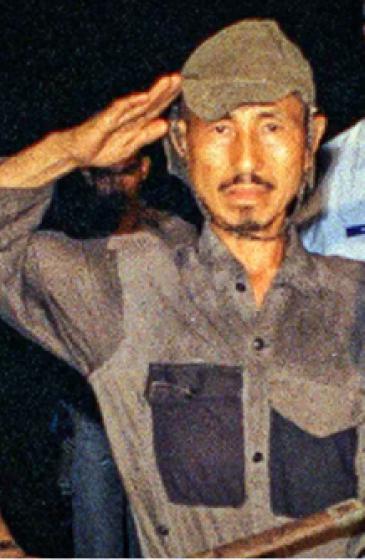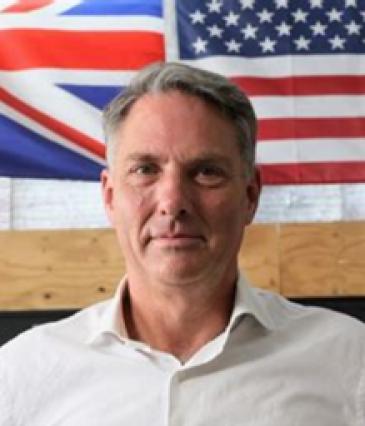" property="og:description" />
Richard “Hiroo Onada” Marles
Written by: Nick G. on 11 February 2026
We reproduce without comment a ten-minute transcript of part of an Australia Pacific Defence Reporter podcast number 127. The APDR is an online journal of news about military contracts, personnel appointments and military technology. The podcast is by its editor, Kym Bergmann, who has worked for, and with, some of the more significant armaments industries. He does not oppose the US-Australia Alliance, but is concerned about Australian subservience within the Alliance. (For a previous excerpt from a Bergmann podcast, see here: AC+2023.pdf pages 26-7) - eds
Hiroo Onada was a 2nd Lieutenant in the Intelligence Corps and in certain circles he is famous because he was the last Japanese soldier to surrender in the 2nd World War, which he did in 1974, almost 29 years after the war had officially ended. He hid out in the jungles of the Philippines, living off the land, and for all that time killing the occasional citizens.
Now, 2nd Lieutenant Onada was so convinced of the invincibility of Japan that he refused to accept reality and believed all of the information he received about Japan’s surrender was enemy propaganda, and he was having absolutely none of it.
As I say, he kept that up for 29 years, and in fact, once he had been located by a Japanese adventurer, the only way he was finally convinced to give up was when the Japanese government sent his former commanding officer to the Philippines to order him to surrender.
And why am I telling you this story?
It’s because our Defence Minister Richard Marles and his total devotion to AUKUS means he is the spiritual heir of 2nd Lieutenant Hiroo Onada.
No matter what evidence he is presented with, he can only continue to bleat and insist AUKUS “is on track”, and as I predicted previously, he repeats that phrase repeated by that greatest monster Donald Trump that “everything is going full steam ahead”.
He was prompted to say this because there was a burst of publicity prompted by yet another report by the Congressional Research Service which posed a number of scenarios and not for the first time – that is the job of the CRS – about Australia not receiving Virginia-class submarines, either second-hand or new, and Australia using that money for other capabilities, such as B-21 long-range bombers.
Now, the Congressional Research Service is very high, very authoritative, and it has excellent contacts in the US government, and so when they produce a report like this, it is taken very seriously. It is not the sort of thing that should be dismissed, yet as I said in a previous podcast, this government, and the Coalition were no better – they have no time for think-tanks, academia, the media or the opinion of retired military people.
The Department has become entirely self-referential, as once they have collectively made up their minds about something, they are not in the slightest interested in alternative opinions or alternative views.
Print Version - new window Email article
-----
Go back
Independence from Imperialism
People's Rights & Liberties
Community and Environment
Marxism Today
International
Articles
| Richard “Hiroo Onada” Marles |
| Indigenous people's leading role in Northern Australia |
| Boss Class Agenda or an Independent Working Class Agenda? |
| Workers united struggle under re-elected ALP government is needed |
| Blainey's "The causes of war" - a timely read |
| Venezuela and Australia, we’ll fight for our independence and we’ll win! |
| Speech at Venezuela solidarity rally, Melbourne, January 4 |
| CPA (M-L) condemns US kidnapping of Maduro |
| Holiday Reading - "The New Cold War" |
| Workers’ struggle as a class gives life to ACTU's "strength in numbers, power in solidarity, we are unstoppable" |
| US imperialism: can it manage its decline to stay on top? |
| AUKUS: “Full steam ahead” to nowhere? |
| Snap SA protest targets arms manufacturers |
| Talk at Eureka Rebellion Anniversary and 50 years since Gough Whitlam's dismissal commemorative meeting |
| Farm Numbers Down - Farm Debt Up |
| Book Review: Turbulence |
| Book review: Empire of AI: the reckless race for total domination |
| Building struggle around an independent working class agenda is the key |
| AUKUS prompts razor gang cuts to science and health |
| Labor hire warehouse workers and government support service workers win through struggle |
-----


